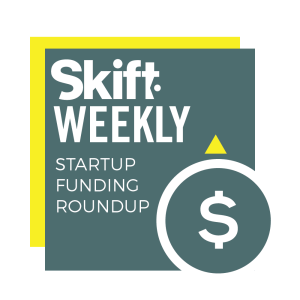Lilium Raises $192 Million for Electric Taxi Jets: Startup Funding Roundup

Skift Take

Travel Startup Funding This Week
Each week we round up travel startups that have recently received or announced funding. Please email Travel Tech Reporter Justin Dawes at jd@skift.com if you have funding news.Three travel tech companies have announced more than $193 million in funding this week.
>>Lilium, which is developing an electric vertical take-off and landing jet, has closed a capital raise of $192 million.
It includes $42 million of venture capital from German tech investors Earlybird Venture Capital, BIT Capital, UVC Partners, and Frank Thelen, as well as multiple institutional investors led by B. Riley Securities, e-mobility investor E-vestment B.V., and several Lilium board members and senior executives also participated.
It also includes $75 million from an underwritten public offering and an incoming $75 million from Tencent Holdings affiliate Aceville.
The Germany-based company, which went public in September 2021 via SPAC, was told in April that it would face delisting if its stock price did not maintain the $1 minimum re

